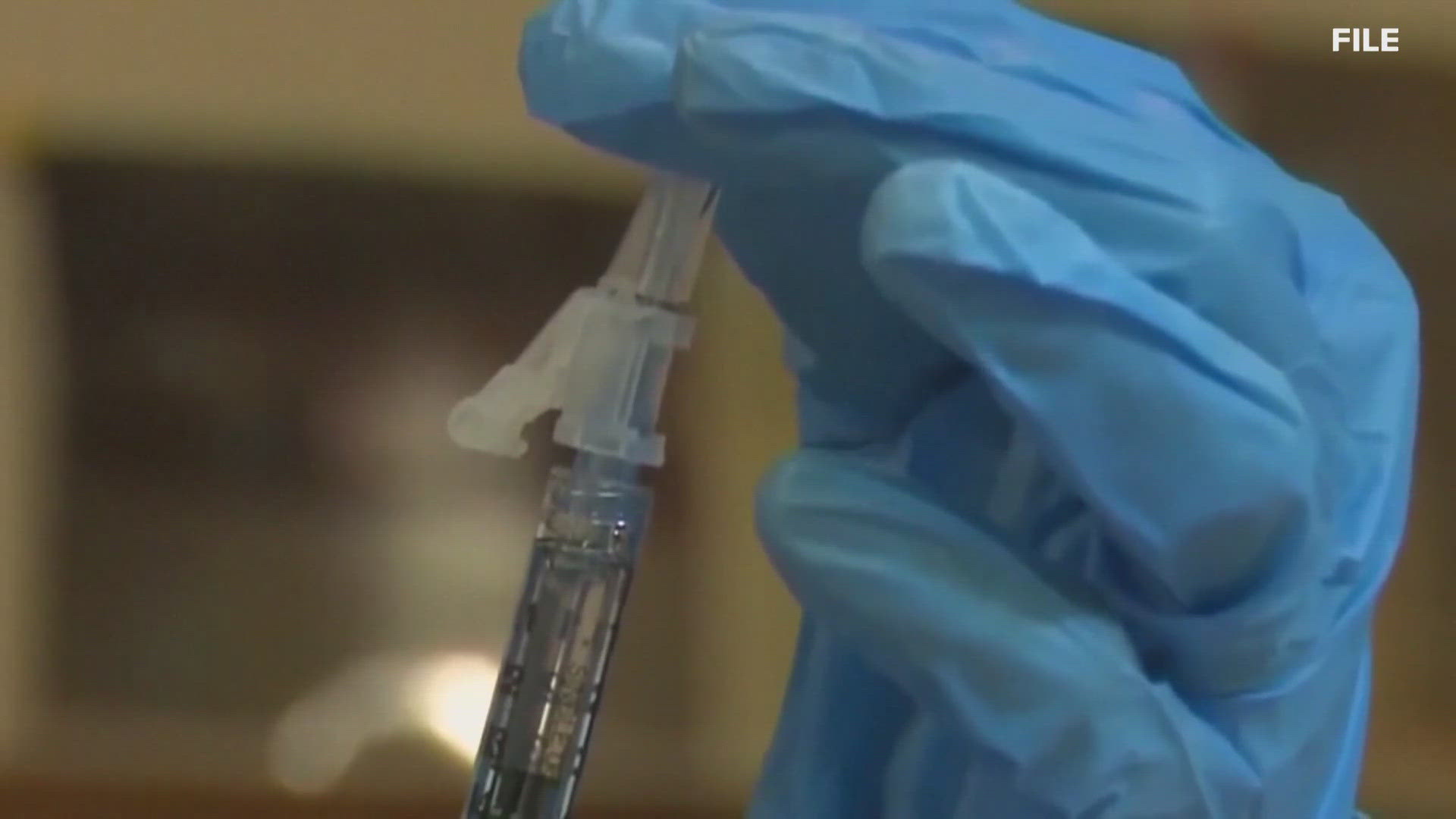ST. LOUIS — Back-to-school often means back to the pediatrician's office to get your child caught up on required immunizations. 5 On Your Side's Sydney Stallworth is answering your back-to-school health questions.
Many parents have questions about one vaccine that's not required for public schools in Missouri but is encouraged by the Centers for Disease Control and Prevention for kids across the country-- the HPV vaccine.
HPV, or human papillomavirus, is the most common sexually transmitted infection in the U.S. HPV is usually harmless and goes away by itself, but some types can lead to cancer or genital warts. There are at least six types of cancer, including cervical cancer, that can result from HPV infections.
The CDC reports HPV vaccine has the potential to prevent more than 90% of cancers caused by HPV.
There are a lot of questions and misconceptions about the vaccine.
One of the most common claims by parents leading to hesitancy to have their kids vaccinated, according to the National Institute of Health (NIH) is that their kids are too young to be vaccinated against HPV.
This morning we’re checking in with the CDC and the NIH to get to the facts.
Claim: The HPV vaccines are only for girls.
The HPV vaccine series requires two or three doses, and the CDC recommends both boys and girls start getting the shot at 11 or 12 years old, but says they can start at 9. If you've heard that HPV vaccines are only for girls, that is no longer the case. The CDC explains the HPV vaccine was first recommended in the U.S. in 2006 for girls and young women. In 2011, the recommendation was expanded to include boys.
We checked in with Dr. Rachel Orschein, a professor of pediatrics from Washington University’s Infectious Diseases Department, to hear what concerns she hears from parents about the recommended age range for the vaccine, and whether they should be worried.
Orschein said, “We never know when we’re going to be exposed to an infectious agent so being vaccinated before that happens is really important. That’s why we want those pre-teens and young teens to be vaccinated for HPV. There’s no evidence that being vaccinated against this agent prompts people to initiate sexual activity. So, certainly, that myth can be dispelled.”
Claim: Kids are too young for HPV vaccines.
The NIH has the claim that 'kids are too young for HPV vaccinations' listed as one of their top 5 myths surrounding the vaccine.
The NIH lists these findings to address that claim:
- There is a higher immune response to the protection of the vaccine at an earlier age, so 11-12 years is a good target for immunizations.
- The antibodies will stick around for up to 20 years as kids grow.
- The HPV vaccine is more effective if taken before a person starts sexual activity and risks exposure.
- The vaccine does not increase sexual promiscuity in whoever takes it.
It could be crucial for parents to have these answers not just for their kids, but for themselves.
Right now, researchers are seeing an uptick in HPV-related cancers, like cervical cancer, in women in their 30s and 40s. Most of these women never got the HPV vaccine since it was first recommended by the CDC in 2006.
If you missed the 11- to 12-year-old window to get vaccinated, you can still speak to your doctor about getting the HPV shots.
People ages 9 through 14 are recommended to get a two-dose series of the vaccine. But, the CDC also lists HPV vaccination recommendations for people as old as 45. The CDC recommends three doses for anyone 15 to 45 years old.
However, CDC officials said getting the vaccine after the age of 26 years old, may not offer the same protection as would if you got it as a pre-teen. The older you get, the more likely the protection will be weaker, mostly because more people in the adult age range have already been exposed to HPV.
But, it still can help in preventing certain types of cancers. It's important to check with your doctor to see if you should get the HPV vaccine for yourself or your child.
The most important message today? Book those cancer screenings!
The National Cancer Institute reports a 15% drop in women ages 21 to 65 coming in for cervical cancer screenings. Black women and Native American women are 65% more likely to die from the disease.

